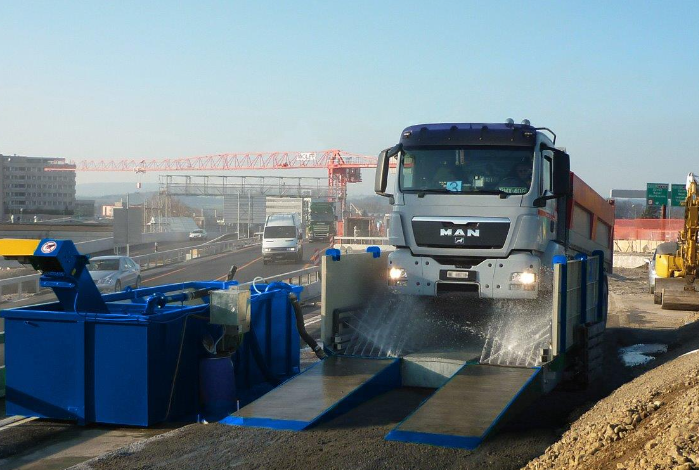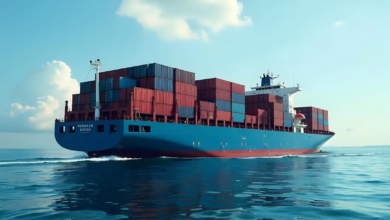Tips for Proper Maintenance and Care of Wheel Wash Equipment”

Introduction to Wheel Wash Equipment
Wheel wash systems are an indispensable component of many industrial and construction sites, ensuring that vehicles leaving the site do not carry out unwanted dirt and contaminants onto public roads. The importance of these systems cannot be overstated, as they not only help in maintaining environmental compliance but also enhance safety and reduce cleaning costs. Proper maintenance and care of your wheel wash equipment are crucial for its effective operation and longevity. This guide provides comprehensive insights and tips to ensure your wheel wash system remains in top condition, offering first-hand knowledge and expertise on the subject.
Understanding Your Wheel Wash System
Before diving into maintenance tips, it’s essential to understand the different types of wheel wash systems available and how they function. Whether your site uses an automatic system, designed for high-volume traffic with minimal manual intervention, or a manual system, requiring more hands-on operation, knowing the specifics of your equipment is the first step towards effective maintenance. This section will break down the components and workings of various wheel wash systems, providing a solid foundation for the care instructions to follow.
Routine Maintenance Procedures
Routine maintenance is the backbone of keeping your wheel wash equipment in prime working order. From daily inspections to prevent buildup of debris, to monthly checks on system components, this section will outline a comprehensive maintenance schedule. By adhering to these procedures, you can prevent most common issues and ensure your equipment operates efficiently, reducing the need for costly repairs or replacements.
roubleshooting Common Issues
Even with meticulous maintenance, wheel wash systems can encounter issues. Recognizing common problems and knowing how to address them quickly can prevent downtime and costly repairs. This section explores typical malfunctions such as clogged nozzles, pump failures, and sensor issues. By offering troubleshooting steps, we aim to empower you with the knowledge to fix these problems swiftly or know when it’s time to call in a professional. Understanding these challenges and how to overcome them ensures your wheel wash system remains operational, minimizing the impact on your operations.
Enhancing Longevity Through Proper Care
The longevity of your wheel wash equipment significantly depends on how well it’s cared for. Beyond routine maintenance, there are specific practices that can extend the life of your system. This includes regular calibration of sensors, proper winterization to prevent freeze damage, and the avoidance of harsh chemicals that can corrode system components. In this section, we provide actionable tips that go beyond the basics to ensure your equipment serves you well for years to come. Learn how to protect your investment and maximize its utility with these advanced care strategies.
The Importance of Using the Right Cleaning Solutions
Choosing the correct cleaning solutions is crucial for the efficiency and safety of your wheel wash system. Using inappropriate or harsh chemicals can damage the system and be harmful to the environment. This part of the guide discusses how to select the right cleaning agents that are effective against the type of contaminants your site deals with while being safe for your equipment and the environment. We’ll cover eco-friendly options that offer powerful cleaning without the negative consequences, ensuring your operations remain sustainable.
Safety Measures and Best Practices
Safety is paramount when operating heavy machinery, including wheel wash systems. This section outlines essential safety measures and best practices to prevent accidents and ensure a safe working environment. From implementing lockout/tagout procedures during maintenance to ensuring proper training for all operators, we’ll cover the spectrum of safety protocols that should be in place. Adhering to these guidelines not only protects your team but also ensures that your equipment operates within regulatory standards.
Innovations in Wheel Wash Technology
Staying informed about the latest advancements in wheel wash technology can offer opportunities to enhance the efficiency and effectiveness of your system. This section delves into recent innovations, such as automated systems with advanced sensors for improved dirt detection and removal, and eco-friendly models that recycle water. Understanding these advancements can help you decide whether upgrading or retrofitting your current system could benefit your operations.
Cost-Effective Maintenance Strategies
Maintaining wheel wash equipment can be costly, but there are strategies to manage these expenses without compromising the quality of care. This section offers tips for cost-effective maintenance, from implementing a preventive maintenance schedule to reduce the likelihood of major repairs, to sourcing quality parts at competitive prices. Discover how to make smart decisions that keep your maintenance costs in check while ensuring your equipment remains in top condition.
Professional Maintenance vs. DIY
Deciding between professional maintenance services and doing it yourself can be challenging. This part of the article weighs the pros and cons of each approach, considering factors like cost, expertise, and time. Whether you have a small operation that can be managed in-house or a large site that requires the expertise of professional services, understanding the benefits and limitations of each option will help you make an informed decision.
What regular maintenance does my wheel wash system require?
Regular maintenance for your wheel wash system should include daily inspections for debris and clogs, weekly checks of mechanical parts for wear and tear, and monthly testing of sensors and electrical components. Ensuring proper drainage and cleaning of the system is also crucial to prevent buildup and ensure efficient operation.
How can I troubleshoot a decrease in water pressure in my wheel wash system?
A decrease in water pressure can often be attributed to clogged nozzles or filters. Check these components first and clean or replace them as needed. If the issue persists, inspect the pump and its electrical connections for signs of malfunction or wear.
Can I use any type of cleaning solution in my wheel wash system?
It’s essential to use cleaning solutions recommended by the manufacturer of your wheel wash system. Using inappropriate chemicals can damage the equipment and pose environmental hazards. Opt for eco-friendly and equipment-safe cleaning agents specifically designed for use in wheel wash systems.
How do I protect my wheel wash system during freezing temperatures?
To protect your system during freezing temperatures, ensure that all water is drained from the equipment to prevent freezing and potential damage. Some systems come with built-in heaters or insulation for cold weather protection. Always refer to the manufacturer’s guidelines for winterizing your specific model.
What are the signs that my wheel wash system needs professional maintenance?
Signs that your wheel wash system may require professional maintenance include persistent operational issues despite troubleshooting, significant drops in performance, and visible damage to components. If you’re unsure about the nature of a problem, it’s best to consult with a professional to prevent further damage.
Can I extend the lifespan of my wheel wash system?
Yes, you can extend the lifespan of your wheel wash system through regular maintenance, prompt troubleshooting of issues, and using the system as intended by the manufacturer. Avoid overloading the system, keep it clean, and ensure that all operators are trained in its proper use and care.
Proper maintenance and care of your wheel wash equipment are crucial for its performance, longevity, and safety. Through routine maintenance, troubleshooting common issues, and employing cost-effective strategies, you can ensure your wheel wash system remains reliable and effective. Staying informed about technological advancements and safety best practices further enhances the value and efficiency of your operations. Remember, investing time and resources into the care of your wheel wash equipment is an investment in the success and sustainability of your business.



